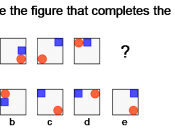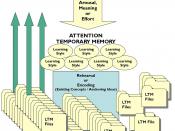LIFESPAN DEVELOPMENTAL FRAME OF REFERENCEA biopsychosocial framework for Occupational Therapyassessment and intervention where adult development isconceived as following a predictable, sequential pattern ofage-related stages or phases.
Theoretical AssumptionsHuman development occurs in an orderly fashion throughout the cycleSteps within the developmental process are sequential and none can be skipped.
As a person proceeds through the life cycle, he encounters life events and changing internal and external conditions that necessitate reappraisal and change.
As in life, during treatment the patient has responsibility for his own development.
FunctionAbility of the person to respond to external expectations as well as oneÃÂs own feelings in a process called adaptation together with the accomplishments of developmental tasks for each life stage.
DysfunctionOccurs when stage specific enabling skills have either not been learned or can no longer be used effectively. This may be a time of temporary difficulty as the person copes with lifeÃÂs transitions.
Role of OTProvide a Growth Facilitating EnvironmentWell informed about Lifespan DevelopmentActs as liaisonTeacher, Facilitator, Participant-Observer and Supporting AgentEvaluationUse a developmental stance in assessmenttake note of stage within lifespandetermine enabling skills that are deficient or weak and which are strongdetermine barriers keeping the individual from developing or utilizing his skillsdetermine situations where the individual functions bestidentify characteristic lifestyleTreatmentRemediation to Prevention ContinuumBuild adaptive skills in OTSelect activities that will bridge the gap between the individualÃÂs present skill level & skills needed to learn & masterProvide a suitable environment for normal developmental patternCOGNITIVE BEHAVIORAL FRAME OF REFERENCE-Primarily seeks to change the thoughts believed to resultin or cause specific behavior to develop a knowledgebase for problem solving.
-Assumes that a personÃÂs cognitive function & beliefsmediate or influence his affect and behavior.
Theoretical AssumptionsA personÃÂs emotions & feelings are interdependent with what he knows & believes.
When an individual learns new cognitive strategies to respond to the...


